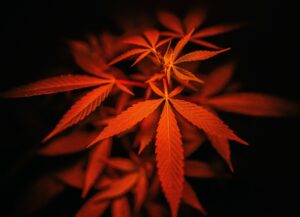If there is one thing that every american has heard about marijuana it is that marijuana is a gateway drug. But what does a gateway drug even mean? Many of medical marijuana’s most vocal opponents rally their campaign around the idea that cannabis is a stepping stone towards harder drugs, such as cocaine, heroine, and methamphetamine, but where is the evidence for this claim?
What is the Gateway Theory?
The gateway theory first got its start from the idea that the use of marijuana would lead people down a rabbit hole of harder drug use because cannabis primes the brain for taking harder drugs due to a phenomenon known as cross-sensitization. Cross-sensitization describes a reduction of reactivity in the dopamine centers of the brain leaving users with a heightened response when exposed to more THC or other drugs. Cross-sensitization, however, is not unique to marijuana. It has been seen to occur with a alcohol and nicotine, which are also commonly taken before users progress to harder drugs. Despite all of the concern about marijuana providing a gateway to other drug use, the National Institute of Drug Abuse reports that majority of marijuana users do not go on to take other drugs. Factors that lead people down a path of hard drug consumption hinge greatly on social factors, such as economic status, where a person lives, or their interpersonal relationships.
Bending the Truth to Prove the Gateway Theory
Many studies that attempt to prove the gateway theory revolve around the fact that the correlation between marijuana and hard drug use is the same as causation. There is no clear connection, however, that shows that the future use of hard drugs is dependent on previous use of marijuana. A popular study by Dr. Jodi Gilman in 2014 stated that even a small amount of marijuana had the ability to change the the neural matrix of core reward systems in the brains of young marijuana users. Yet this study faced a myriad of backlash from other researchers because it lacked accurate controls. The study, however, is still widely quoted and used as evidence by anti-marijuana advocates.
Studies that disprove the gateway theory are often discredited because they were conducted outside of the United States or by marijuana advocacy groups. This discrepancy in what studies are accepted to be true shows the deceptive qualities of many of the anti-marijuana campaigns. Yet the tide is beginning to turn as more states legalize marijuana, both medically and recreationally.
What about Alcohol and Nicotine?
It is impossible to claim that marijuana is a gateway drug if its effects are echoed across two other widely available substances, alcohol and nicotine. 54% of high school seniors in a Texas A&M and University of Florida study, which used data from Monitoring the Future, had tried alcohol, compared to only 14% who had tried marijuana. More students had also tried nicotine compared to cannabis. Across the students surveyed almost all of them tried alcohol before marijuana or nicotine. Alcohol is legal in almost every country in the world, and is widely used without much thought or concern.
If the effects of marijuana are no more dramatic than those of alcohol, why does marijuana receive this detrimentally negative title as the singular gateway drug? Marijuana has been used as a scapegoat drug as politicians fear that legalization will cause a dramatic increase in the use of marijuana, yet a multi-year study by Institute for the Study of Labor (IZA), a non-profit independent research institute showed no correlation between legalization and increased marijuana use by teens.
Chris Christie, the governor of New Jersey and one of marijuana’s most staunch opposers, has openly stated that one of the biggest concerns with marijuana is its ability to be a gateway to other drugs. He claims that marijuana legalization will further the problem of drug addiction that the United States already faces. Though he has allowed a small amount of medical marijuana to be permitted in New Jersey, he still opposes it recreationally and medically across the country. Christie has spoken openly against “blood money” that states like Colorado have brought in from marijuana legalization. Christie, however, has expanded production of hard alcohol in New Jersey since 2013 for increased tax revenue for the state. This large discrepancy in policies between marijuana and alcohol show a clear education gap people even in high points of government that marijuana’s title as a gateway drug could easily be applied to many substances that are widely used and profited from.
Decreasing Substance Abuse with the Help of Marijuana
Marijuana has shown to provide many medical benefits which could even serve to reduce the number of people exposed to highly addictive opioid drugs. Cannabis has shown to be extremely effective in helping patients find relief from short term and chronic pain problems. The misuse of opioids, which can stem from once legitimate prescriptions for pain and later turn into addiction, have been rising steadily in the United States. In 2012 alone, 259 million prescriptions were written for opioids. Legal opioids also create a dangerous path towards heroine addiction, 4/5 heroine users started their habit by misusing prescription opioids. Roughly 62% of overdoses in the United States in 2014 could be attributed to opioids and heroine. Marijuana has not been seen to have the same addictive trends as opioids, while still being able to provide adequate pain relief.
It is time for anti-marijuana groups to see the truth in cannabis: that it is a life save, not a life taker. Medical marijuana can provide benefits to patients suffering from hundreds of ailments, without potentially detrimental side effects that are present in other medications. If the title of gateway drug should be given to any substance alcohol is the best candidate. Alcohol is more widely used than marijuana and produces the same cross-sensitization effects. It is time for marijuana to step out of its scapegoat position and into its rightful, legitimized spot in the medical field.
If you are new to cannabis and want to learn more, take a look at our Cannabis 101 post. HelloMD can help you get your medical marijuana recommendation; it’s 100% online, private and efficient.






